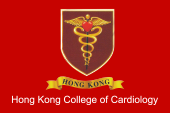Abstract
Cardiogenic shock is the most common cause of mortality in patients with acute myocardial infarction with an increase in incidence over the last 15-years. Recent classification systems of cardiogenic shock (CS) have improved categorization of patients into subsets of acuity and begun to integrate phenotypes and etiologies in addition to risk modifiers. Early revascularization with PCI or CABG has been the most important advance in the management of AMI-CS patients with improvements in survival. Despite this initial progress, mortality remains high at approximately 40%, with a significant proportion of patients dying of neurological causes, especially in the cohort with cardiac arrest and multi-organ dysfunction despite cardiac recovery. Mechanical circulatory support devices are an attractive strategy to ameliorate the cardio-metabolic spiral but have thus far failed to show survival benefits in randomized trials during revascularization of AMI-CS patients with IABP and ECMO use, although many aspects of their use have yet to be studied, including their role as part of an escalation or bridging strategy along the continuum of CS care. Randomized trials in Impella percutaneous LVAD use are pending. Cardiac arrest patients represent an important cohort with specific challenges of care and familiarity with management including the use of mechanical CPR devices, temperature optimization, MCS use and pharmacotherapy issues are critical to successful outcomes.
Recommended Citation
Beani J Forst, J Philip J Smyth, Christopher N Kanaan, Eric H Yang, Deepak Acharya, Kwan S Lee, Percutaneous Coronary Intervention in Acute Myocardial Infarction Patients with Cardiogenic Shock Journal of the Hong Kong College of Cardiology 2024;31(4) https://doi.org/10.55503/2790-6744.1533
Creative Commons License

This work is licensed under a Creative Commons Attribution-Noncommercial-No Derivative Works 4.0 License.

